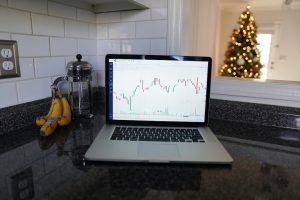Forex trading is the largest and most liquid financial market in the world, with an average daily trading volume of $5.3 trillion. The foreign exchange market is a decentralized market, which means it is not controlled by any central authority or financial institution. Instead, it is influenced by a variety of factors, including economic, political, and social factors.
Economic Factors
Economic factors are the most significant influences on forex trading. Economic indicators such as interest rates, inflation, GDP, and employment figures have a direct impact on the value of currencies. Interest rates, for example, are a key factor in determining the value of currencies. Higher interest rates generally increase the demand for a currency, as investors seek higher returns on their investments.
Inflation is another economic factor that can impact forex trading. Higher inflation rates can lead to a decrease in the value of a currency, as the purchasing power of that currency decreases. Conversely, lower inflation rates can lead to an increase in the value of a currency, as the purchasing power of that currency increases.
GDP, or gross domestic product, is a measure of a country’s economic output. A strong GDP can indicate a healthy economy, which can lead to increased demand for a currency. Conversely, a weak GDP can indicate an economic downturn, which can lead to a decrease in demand for a currency.
Employment figures are also an important economic factor in forex trading. A strong job market can lead to increased consumer spending, which can boost economic growth and increase demand for a currency. Conversely, a weak job market can lead to decreased consumer spending, which can lead to a decrease in demand for a currency.
Political Factors
Political factors can also impact forex trading. Political instability, for example, can lead to a decrease in the value of a currency. This is because investors may view the country as a risky investment due to the uncertain political climate.
Trade policies can also impact forex trading. When countries engage in trade agreements, it can lead to increased trade and economic growth, which can boost demand for a currency. Conversely, protectionist policies, such as tariffs and trade barriers, can lead to decreased trade and economic growth, which can lead to a decrease in demand for a currency.
Social Factors
Social factors can also influence forex trading. Changes in consumer behavior, for example, can impact the value of a currency. Consumer spending patterns can be influenced by a variety of factors, including changes in demographics, lifestyle trends, and technological advancements.
Social unrest can also impact forex trading. When protests, riots, or other forms of social unrest occur, it can lead to a decrease in the value of a currency. This is because investors may view the country as a risky investment due to the uncertain social climate.
Conclusion
In conclusion, forex trading is influenced by a variety of factors, including economic, political, and social factors. Economic indicators such as interest rates, inflation, GDP, and employment figures have a direct impact on the value of currencies. Political instability, trade policies, and social unrest can also impact forex trading. As a result, forex traders need to be aware of these factors and monitor them closely in order to make informed trading decisions.





